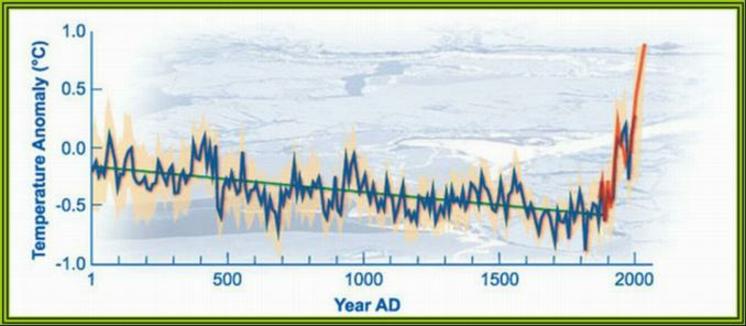New Study Predicts 'Scary' Collapse Anytime
July 29, 2011 3:17 AM EDT
Melting ice sheets of Greenland have been a cause of concern for researchers and climate change proponents, as previous studies on the ice sheet behavior projected Greenland's ice less stable compared to Antarctica's ice. But a recent study by scientists from the University of Wisconsin-Madison, suggests that we may have got it all wrong.
New results published by geoscience assistant professor Anders Carlson and his team in the July 29 edition of "Science," are revealing surprising patterns of melting during the last interglacial period that suggest that Greenland's ice may be more stable and Antarctica's less stable, contrary to what many thought.
Ice sheet behavior has always been a source of uncertainty in predicting sea level rises due to climate change, Carlson says. His research team carried out the study to determine the ice sheet behavior of Greenland during the last interglacial period, around 125,000 years ago, to better define past behaviors and improve future projections.
The researchers analyzed silt from an ocean-floor core taken from a region off the southern tip of Greenland that receives sediments carried by melt water streams off the ice sheet. The patterns of radiogenic isotopes to identify sources of the sediment, traced the silt back to one of three "terranes" or regions, each with a distinct geochemical signature. The patterns of sedimentation show which terranes were still glaciated at that time.
The team then compared their results with existing models of Greenland ice sheet melting during the last interglacial period. The models consistent with the new findings indicate that melting Greenland ice was responsible for a sea level rise of 1.6 to 2.2 meters - at most, roughly half of the minimum four-meter total increase.
Even after accounting for other Arctic ice and the thermal expansion of warmer water, most of the difference must have come from a melting Antarctic ice sheet, Carlson says.
"The ice definitely retreated to smaller than present extent and definitely raised sea level to higher than present" and continued to melt throughout the warm period, he adds, but the sediment analysis indicates that "the ice sheet seems to be more stable than some of the greater retreat values that people have presented."
"The implication of our results is that West Antarctica likely was much smaller than it is today," and responsible for much more of the sea level rise than many scientists have thought, Carlson, a member of the Center for Climatic Research in the Nelson Institute for Environmental Studies, says. "If West Antarctica collapsed, that means it's more unstable than we expected, which is quite scary," as the temperatures during the last interglacial period were similar to those expected by the end of this century.
Carlson expressed his hope that the new line of thought would improve representation of ice sheet responses to a warming planet in future Intergovernmental Panel on Climate Change (IPCC) reports.
Recently, researchers from the University of Toulouse, and the University of Colorado, produced detailed ice loss maps from 2001 to 2009 by combining satellite data from NASA and the French space agency CNES, which showed an alarming ice loss in the study area of at least 11.2 gigatons (11.2 billion tons) per year from 2001 to 2006. Their ongoing work shows ice loss from 2006 to 2010 was almost as large, averaging 10.2 gigatons (10.2 billion tons) per year.
Yet another research carried out by scientists of University of Arizona who published their findings in the journal Nature Geoscience in July, also warned about warming ocean causing the melting ice of Greenland and Antarctica faster than had been expected.
"Ocean warming is very important compared to atmospheric warming because water has a much larger heat capacity than air," lead researcher, Jianjun Yin explained. "If you put an ice cube in a warm room, it will melt in several hours. But if you put an ice cube in a cup of warm water, it will disappear in just minutes."
"Both Greenland and Antarctica are probably going to melt faster than the scientific community previously thought," co-author and co-director of the University of Arizona's Institute of the Environment, Jonathan T. Overpeck said in a statement."This paper adds to the evidence that we could have sea level rise by the end of this century of around 1 meter and a good deal more in succeeding centuries."
This has been a Worry of Mine for Some Time...
Welcome to By 2100!
This Blog is designed to be a Diary of Events illustrating Global Climate Change, and where it will lead.
Commentary is encouraged, but this Blog is not intended for discussion on the Validity of Climate Change.
Category Labels
- Climate Events (85)
- Climate Solutions (45)
- Videos (42)
- Climate Statistics (39)
- The Deniers (34)
- Humour (15)
- Basic Information (5)
Subscribe to:
Post Comments (Atom)
www.know-the-number.com
Our Climate is Changing!Please download Flash Player.

No comments:
Post a Comment